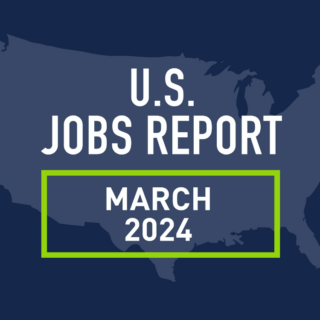The Office for National Statistics released its August Labour Market Bulletin which reports on the three months of April, May and June 2018. The bulletin reports 42,000 jobs added in the quarter and a decrease in the unemployment rate by 0.2 per cent from the previous quarter. The report is unchanged from last month in showing that average weekly earnings for employees in Great Britain in nominal terms (that is, not adjusted for price inflation, minus bonuses) increased by 2.7 per cent over the last year.

The Numbers
42,000: The economy added 42,000 jobs over the April-June 2018 period.
4.0%: The unemployment fell 0.2 percentage points from the previous quarter.
2.7%: Wages (excluding bonuses) increased 2.7 per cent over the last year.
The Good
UK unemployment fell by 65,000 to 1.36 million in three months of April, May and June – the lowest in more than 40 years. The unemployment rate has not been lower since December 1974 through February 1975. Compared to one year ago, 313,000 more people are working in the UK. For people between 16- and 64-years old, 75.6 per cent are working, up from 75.1 per cent a year earlier. For women between 16-and 64-years old, 71.0 per cent are employed, up from 70.5 per cent a year earlier. The employment rate for men in the same age range, 80.1 per cent are working; the employment rate for men has not been higher since February to April 1991.
The Bad
The lackluster rate of wage increases may create challenges for employers who may see an increasing number of employees look for new jobs as the most direct path to raise their wages in a healthy job market. While the wage increase still outpaces inflation, there is doubt as to whether this will have a significant impact on the overall economy.
As Bloomberg notes:
“There remains precious little sign that wage growth is set to take-off – undermining a key assumption behind the Monetary Policy Committee’s recent decision to raise rates,” said Suren Thiru, head of economics at the British Chambers of Commerce. “The pace at which pay is exceeding price growth remains negligible, and is therefore unlikely to provide much respite to the financially squeezed consumer.”
The Unknown
The ONS figures show the number of European Union nationals working in the UK fell by a record amount. This decrease was the largest annual amount since records began in 1997 and continues a trend seen since the 2016 Brexit vote. This decrease contrasts with a rise in the number of non-EU nationals working in the UK to 1.27 million, which is 74,000 more than a year earlier. Without determining the status of EU nationals working in Britain after a final Brexit settlement, the composition of the UK labour force in both the near and long-term remains uncertain.
